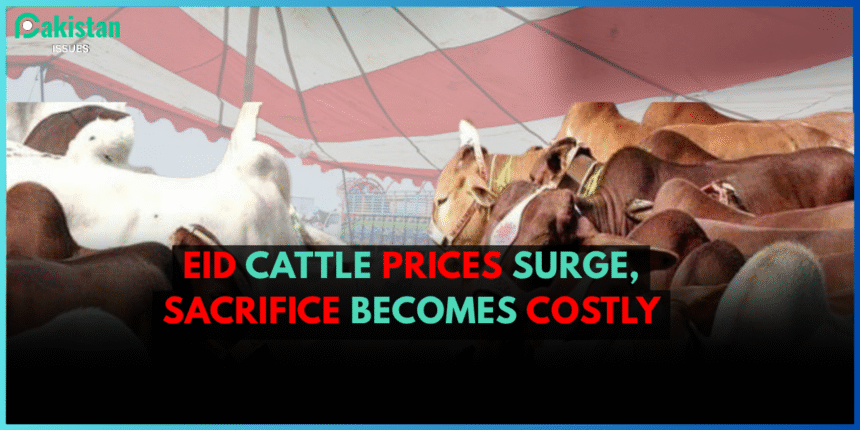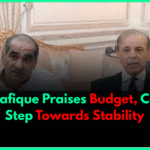With Eid-ul-Adha fast approaching, cattle markets across Pakistan are in full swing — but instead of excitement, many buyers are walking away with frustration. The spirit of sacrifice is clashing with the reality of inflation, as animal prices in major cities like Lahore and Karachi remain beyond the reach of average families.
In Lahore’s Saggian Mandi, a visit to the bustling market paints a clear picture: goats that once cost under Rs. 50,000 now fetch prices between Rs. 70,000 and Rs. 150,000. And these aren’t luxury animals — these are basic, mid-sized goats. Cows are even more expensive, with most being sold for Rs. 300,000 to Rs. 450,000.
Buyers, walking among the crowded stalls, say they’re willing to make sacrifices — but not at these prices. Many complain that even modest options feel overpriced. Some are waiting in hopes that prices will dip closer to Eid, while others are simply choosing not to buy at all this year.
Traders, however, say the price hike isn’t entirely in their hands. With transport costs, animal feed, and stall rentals all rising sharply, sellers claim they’re operating on thinner margins than ever before. “We’ve had to adjust our rates,” said one seller, pointing toward the rows of unsold goats behind him. “Everything costs more this year — from bringing the animals here to keeping them fed.”
Down south in Karachi, the country’s largest cattle market is facing a similar situation. While the market is well-stocked, foot traffic is noticeably lighter than usual. Small animals — goats and calves in the Rs. 100,000 to Rs. 250,000 range — are seeing steady interest, but larger animals remain largely untouched.
Vendors admit they’ve been forced to reduce asking prices due to slow sales. Bulls once priced at Rs. 700,000 are now being offered for nearly half that. Yet, despite these reductions, buyers remain cautious, scanning each stall with skepticism and hesitation.
The trend this year is clear: families are choosing smaller, more affordable animals or turning to collective sacrifices instead of investing in large individual purchases. In many cases, buyers say they’re prioritizing affordability over tradition, with the intention of fulfilling the religious obligation without overextending their finances.
With just a few days left until Eid, uncertainty hangs in the air. Will prices fall as sellers rush to close deals, or will many families walk away empty-handed this year?
The next 48 hours will tell — but for now, Eid preparations in the cattle markets are marked more by bargaining and worry than celebration.










